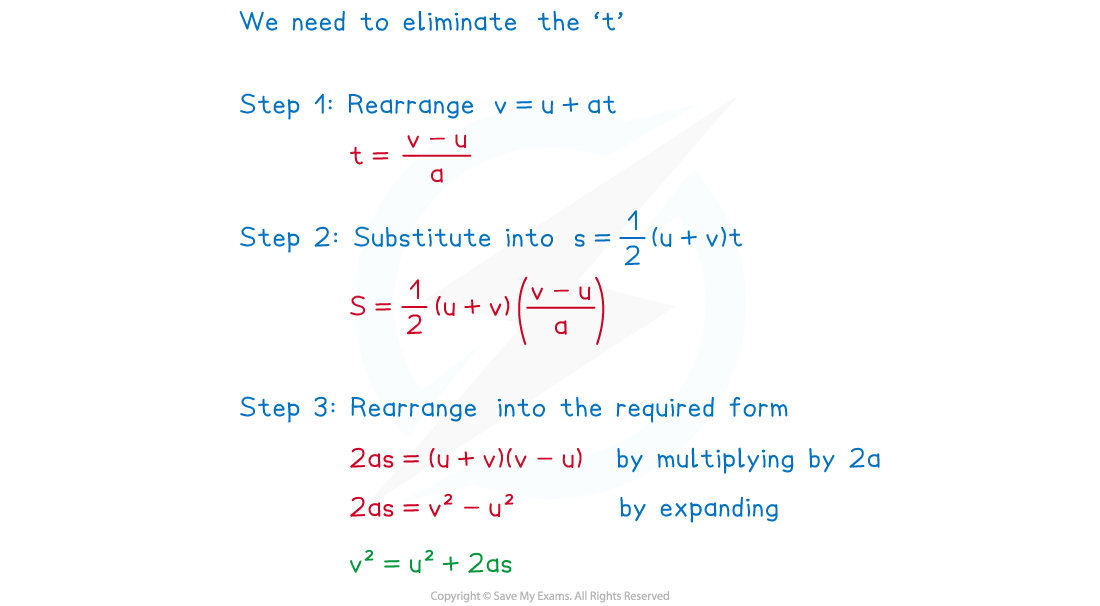Deriving the suvat Formulas (OCR A Level Maths A) : Revision Note
Did this video help you?
Deriving the suvat Equations
What is suvat?
suvat is an acronym for the five quantities used when modelling motion in a straight-line with constant acceleration
s – displacement (from the starting point)
u – initial velocity
v – final velocity
a – acceleration
t – time
All except time are vector quantities and can be negative
time is a scalar quantity
What are the suvat equations (for constant acceleration)?
The five suvat equations for motion in a straight line are:
The equations can only be used when the motion has constant acceleration
All equations connect four of the five quantities
Knowing any three allows a fourth to be found
The equations are provided in the exam
How do I derive the suvat equations?
The four equations that involve time can be derived from a velocity-time graph
The velocity-time graph will be a straight line as the acceleration is constant
The fifth equation can be found by choosing any two of the equations and eliminating the t variable (see the worked example)


Two of the equations can also be derived using calculus
Velocity is found by integrating acceleration
Displacement is found by integrating velocity

Worked Example
Use the constant acceleration equations
and
to show that
.

Examiner Tips and Tricks
If you are asked to derive one of the formulae then the question will likely give you a hint as to which method to use. They may provide a velocity-time graph. Make sure you show each step and state any reasons such as the gradient of the graph being the acceleration.
If the question does not ask you to derive the formulae, then you can use them freely without proof.

You've read 0 of your 5 free revision notes this week
Sign up now. It’s free!
Did this page help you?
